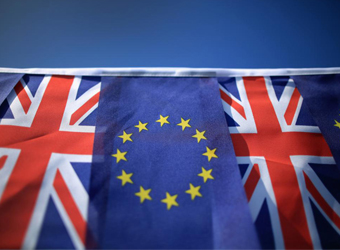EU Brexit chief Michel Barnier said on Sunday that he is preparing for the “possible” failure of divorce talks with Britain, which he has given two weeks to reach preliminary agreement on key issues.
“It’s not my (preferred) option,” he told French weekly Le Journal du Dimanche (JDD). “But it’s a possibility. Everyone needs to plan for it, member states and businesses alike. We too are preparing for it technically.”
He recalled that without a deal on post-Brexit trade terms the EU and Britain would revert to World Trade Organization (WTO) tariffs, with trade ties “like those we have with China”.
On Friday Barnier gave Britain a two-week ultimatum to make concessions on a divorce agreement if it wants to unlock the next phase of talks in December.
He said it was “vital” for Britain to increase its offer on its exit bill — which a figure senior EU officials put at up to 60 billion euros ($70 billion) — to open up talks on a future trade deal.
EU leaders decided at their last summit in October that there was insufficient progress on the exit bill as well as two other main issues — Northern Ireland and the rights of three million Europeans living in Britain.
They said they hoped to open talks on future relations and a post-Brexit transition period at their next meeting on December 14-15, but officials have warned that could now slip to February or March.
The fate of the border between British-ruled Northern Ireland and the Republic of Ireland has thrown an unexpected spanner into the works.
British negotiator David Davis insisted that any Brexit deal cannot create a frontier between Northern Ireland and the rest of the United Kingdom.
But the EU called at talks in Brussels last week for Northern Ireland to effectively stay in a customs union with the bloc to prevent a hard border with Ireland.
The open border helped underpin the 1998 peace deal that ended decades of sectarian unrest.
“The tragic conflict between the Protestants and the Catholics was not that long ago,” Barnier, a former French foreign minister, told JDD. “I won’t do anything that could weaken” the 1998 accord.
If a deal is reached by Barnier’s December 1 deadline, the next phase of talks could open in January towards a “new treaty, which would take at least two years to take effect,” he said.
Source: The Associated Press


